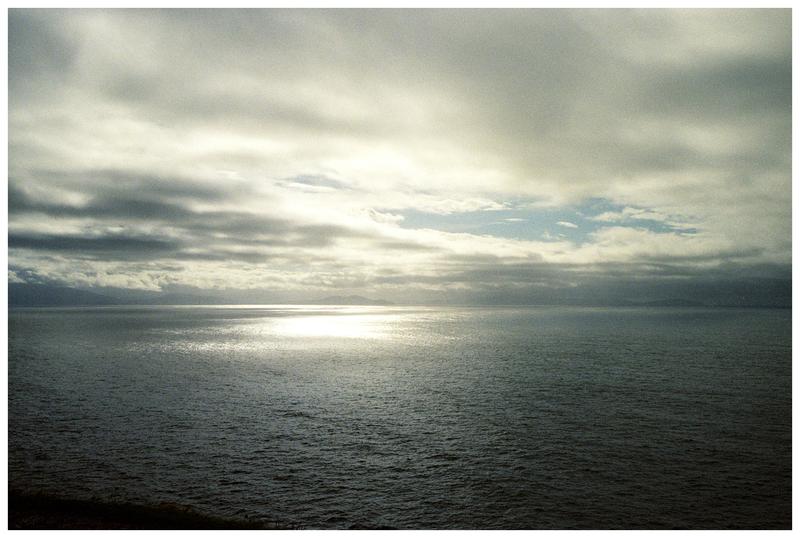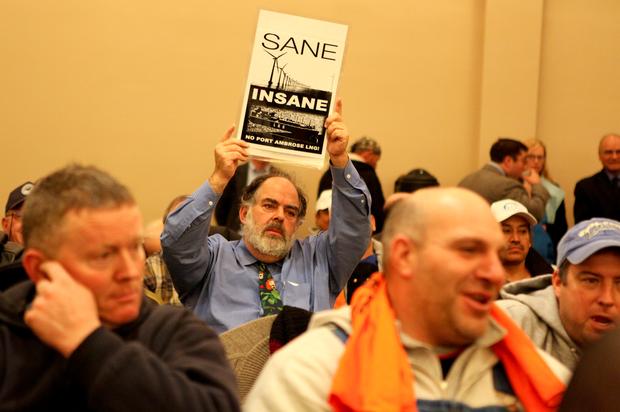
On a blisteringly cold night this week, two very different camps of people trekked to the Hilton Hotel at John F. Kennedy Airport. Union representatives were on hand giving away orange shirts and white hats that read "Liberty Natural Gas," while windswept Rockaway residents and environmentalists wore stickers that say "No LNG" — No Liquefied Natural Gas. All in all, hundreds of people filed into a non-descript banquet room and sat shoulder to shoulder.
They were there to voice their opinion at a public hearing on the Port Ambrose Deepwater Port Project, basically a floating buoy in the Atlantic Ocean about mid way between Jones Beach and New Jersey. Tankers would pull up to it and pump the fuel through underwater pipes to existing facilities on land.
"I'm here in support of the over 800 jobs that it will create and its all about the jobs," Scott Winter, vice-president of the Maritime Trades Department at the AFL-CIO, said before the hearing started.
But opponents cited possible dangers.
Anthony Eramo, a Long Beach City Councilman, said adding 19 miles of underwater pipes in the area raised safety issues.
"It's obviously a terror target or it could be a terror target," he testified.
But when hundreds of environmental activists find themselves sitting right next to dozens of union members, things don't always go well. About two and a half hours into the hearing, an argument breaks out. Each side hurls insults at the other. Scott Winter, the union leader, faces off against a much taller man. The police arrive and eject Winter, while allowing the environmentalist to stay.
Then, the hearing continued —for more than an hour — and still not everyone got to speak.
According to the company that would build the port, Liberty Natural Gas, natural gas prices can spike up to 600 percent, on cold days. And bringing in extra supply at those times can even out those spikes. But truly cold spells, like the one New York City is experiencing now, are relatively rare and energy analysts said similar facilities tend to be underutilized for large parts of the year.
The project requires approval from the federal Maritime Administration and the Coast Guard.
In 2011, New Jersey Gov. Chris Christie vetoed a similar proposal. He and New York Gov. Andrew Cuomo will have veto power on this one, too. There will be one more study, one more chance to offer public comment.

